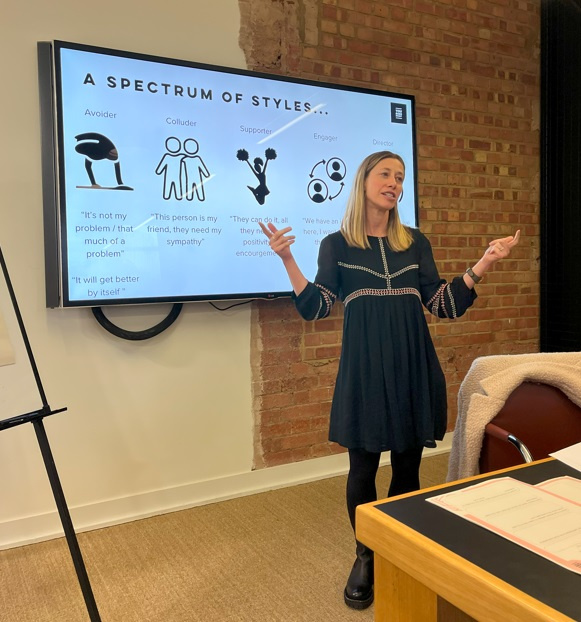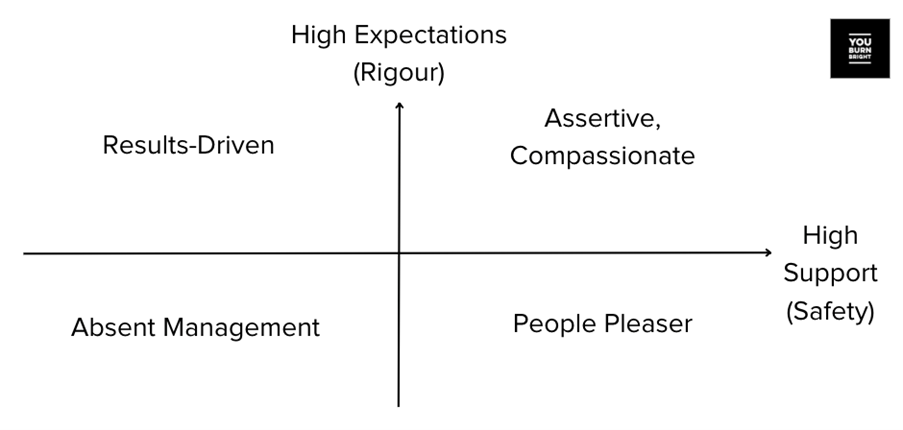How do I communicate negative feedback?

Coaching Couch Issue #4
Welcome to The Coaching Couch. This is the place where talented insight professionals can seek out support for anything they think is getting in the way of feeling, being and giving their best at work.
Today’s question is: How do I communicate a negative bit of feedback, without knocking someone’s confidence?
What a great question. Universally, this is one of the things that managers (new & established) find really hard. The research industry is incredibly nice. We care about people and often put protecting someone’s feelings ahead of everything else. Fear of conflict, worry about the reaction, and sometimes just not knowing how to start can all hold us back.
What’s your job?
I recently ran some workshops on what great people management looks like, and one attendee said “first and foremost, its making sure the person is ok.”
Although this is a really important part of the role, it is not the primary one. The job of a manager is “to help that person, and the team & business, grow.”
Don’t get stuck in either / or thinking
People think if they say positive things they are being nice and if they say negative things they are being unkind.
This black and white thinking keeps people stuck.
There is a great big space between kind & unkind. I like to call that being fair.
If we aim for fairness then we are still kind, but we are also being honest about how that person is doing and where they can improve.
Set the person up for success
What are the consequences (intended and unintended) of not giving this person this honest feedback?
This is a question I ask people a lot. And what they realise is that by protecting someone from a tougher bit of feedback, they are unintentionally communicating to that person: “I don’t think you can handle this.”
Framed in this way, we start to see that delivering fair and honest feedback (even when negative) is a signal that your expectations for this person are high and you believe that they will take the feedback on board and grow from it.
Firm, but Fair
People do their very best work when their manager couples high expectations with high support. I use this grid a lot with those I work with because it helps them see that although they have the best intentions, when they dodge difficult conversations, it ultimately it holds the person back.

To get started…
- Prepare, but don’t overthink: Be clear on the issue and the outcome you want.
- Be objective: Stick to facts over feelings and avoid any judgements or assumptions. Saying “I noticed the report wasn’t ready on time, and I want to understand what happened,” keeps the tone constructive and curious.
- Include them in the solution: What do you think you need to do differently to better manage your time next time? And what support do you need from me?
Thank you for reading and I hope this helps you and those you work with. If this resonated with you or you have an experience to share, drop a comment in the notes. If you have a question you want answered in a future column, get in touch at zoe@youburnbright.com.
—————————————————
Coaching Corner is a bi-monthly column by Zoe Fenn. Zoe is a qualified coach with 15 years of agency-side experience, as a researcher, manager and leader. She now runs her own business, You Burn Bright, helping talented insight professionals become more effective managers and strategic leaders.
She runs workshops, 121 and group coaching programmes for agency-side and client-side professionals. Her next X-industry programme will start in September and is £695pp. If you’re curious or want a sounding board for a management or leadership challenge – get in touch at zoe@youburnbright.com.